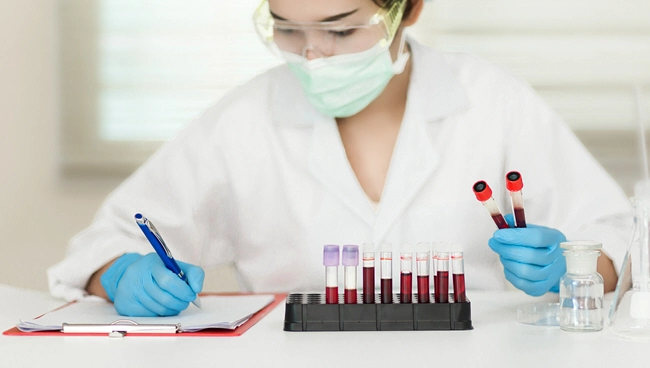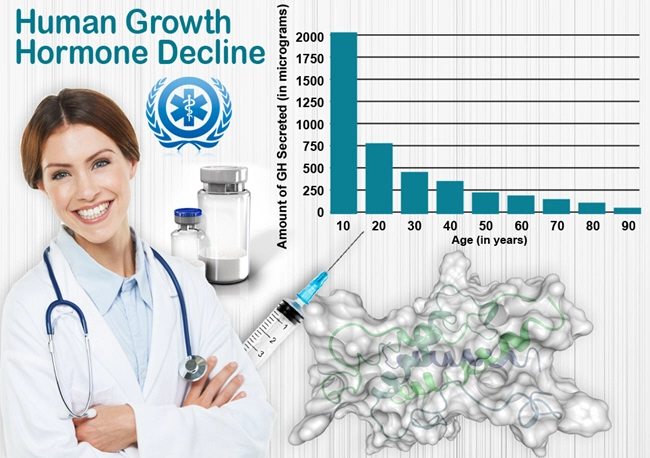
Introduction to HGH Therapy
Human Growth Hormone (HGH) therapy has garnered significant attention among American males seeking to enhance their physical performance, muscle mass, and overall vitality. As a peptide hormone naturally produced by the pituitary gland, HGH plays a crucial role in growth, metabolism, and cellular repair. However, the use of synthetic HGH for therapeutic purposes, particularly in adults, has sparked debates regarding its efficacy and safety. This article delves into the potential side effects of HGH therapy, providing essential information for those considering this treatment.
Understanding HGH Therapy
HGH therapy involves the administration of synthetic growth hormone to individuals who may have deficiencies or wish to achieve specific health and fitness goals. While it is approved by the FDA for certain medical conditions, such as growth hormone deficiency in children and adults, its off-label use for anti-aging and performance enhancement has raised concerns about long-term health implications.
Common Side Effects of HGH Therapy
When considering HGH therapy, it is crucial to be aware of the potential side effects. Some of the most commonly reported adverse effects include:
- **Joint and Muscle Pain**: Many users experience discomfort in their joints and muscles, which can range from mild to severe. This side effect is often attributed to the rapid growth of tissues and the body's adjustment to increased hormone levels.
- **Swelling and Edema**: HGH can cause fluid retention, leading to swelling in the extremities. This condition, known as edema, can be uncomfortable and may require medical intervention if severe.
- **Carpal Tunnel Syndrome**: The increased fluid retention associated with HGH therapy can lead to pressure on the median nerve, resulting in carpal tunnel syndrome. Symptoms may include numbness, tingling, and pain in the hands and wrists.
- **Insulin Resistance**: HGH can affect insulin sensitivity, potentially leading to increased blood sugar levels and a higher risk of developing type 2 diabetes. Regular monitoring of blood glucose levels is essential for those undergoing HGH therapy.
Potential Long-Term Risks
While the immediate side effects of HGH therapy are well-documented, the long-term risks are less understood and warrant careful consideration. Some potential long-term risks include:
- **Increased Cancer Risk**: There is ongoing research into whether HGH therapy may increase the risk of certain cancers, such as prostate cancer. The hormone's role in cell proliferation could potentially contribute to the development of malignant cells.
- **Cardiovascular Complications**: HGH therapy has been linked to changes in lipid profiles, including increased levels of LDL (bad) cholesterol and decreased levels of HDL (good) cholesterol. These alterations may heighten the risk of cardiovascular diseases, such as heart attacks and strokes.
- **Acromegaly**: Prolonged exposure to high levels of HGH can lead to acromegaly, a condition characterized by the abnormal growth of bones and tissues. Symptoms may include enlarged hands and feet, coarsened facial features, and organ enlargement.
Mitigating the Risks of HGH Therapy
To minimize the potential side effects and long-term risks associated with HGH therapy, it is essential to approach treatment with caution and under the guidance of a qualified healthcare professional. Key strategies for mitigating risks include:
- **Regular Monitoring**: Frequent monitoring of hormone levels, blood sugar, and lipid profiles can help detect any adverse changes early and allow for timely intervention.
- **Dosage Adjustment**: Working closely with a healthcare provider to adjust the dosage of HGH based on individual response and side effects can help optimize the benefits while minimizing risks.
- **Lifestyle Modifications**: Adopting a healthy lifestyle, including regular exercise, a balanced diet, and stress management, can complement HGH therapy and reduce the likelihood of adverse effects.
Conclusion
HGH therapy offers potential benefits for American males seeking to improve their physical performance and overall well-being. However, it is crucial to weigh these benefits against the potential side effects and long-term risks. By understanding the possible adverse effects and taking proactive steps to mitigate them, individuals can make informed decisions about whether HGH therapy is right for them. Always consult with a healthcare professional before starting any new treatment regimen.
Contact Us Today For A Free Consultation
Dear Patient,
Once you have completing the above contact form, for security purposes and confirmation, please confirm your information by calling us.
Please call now: 1-800-380-5339.
Welcoming You To Our Clinic, Professor Tom Henderson.

- Maximizing Your Potential: Dietary Strategies to Enhance Human Growth Hormone in American Males [Last Updated On: February 24th, 2025] [Originally Added On: February 24th, 2025]
- Decoding the Biochemical Enigma: Unveiling the Intricacies of Human Growth Hormones [Last Updated On: February 25th, 2025] [Originally Added On: February 25th, 2025]
- The Powerhouse of Biological Growth: Unlocking the Discernments of Human Growth Hormone [Last Updated On: February 26th, 2025] [Originally Added On: February 26th, 2025]
- Unraveling the Riddle of Longevity: A Deep Dive into the Anti-Aging Potential of HGH [Last Updated On: February 27th, 2025] [Originally Added On: February 27th, 2025]
- Unveiling the Marvel of Human Biology: The Intricate Role of Human Growth Hormone [Last Updated On: February 28th, 2025] [Originally Added On: February 28th, 2025]
- Embarking on the Path to Comprehension: Everything You Need to Know about Human Growth Hormone [Last Updated On: February 28th, 2025] [Originally Added On: February 28th, 2025]
- Delving Deep: Unraveling the Human Growth Hormone Enigma [Last Updated On: March 1st, 2025] [Originally Added On: March 1st, 2025]
- Orchestration in The Body: Harmonizing Roles of HGH with Other Hormones [Last Updated On: March 2nd, 2025] [Originally Added On: March 2nd, 2025]
- Exploring the Multifaceted Impact of Human Growth Hormone on Organ Health: From Cardiovascular to Cognitive Functions [Last Updated On: March 3rd, 2025] [Originally Added On: March 3rd, 2025]
- Expanding Horizons in Growth Hormone Therapy Applications [Last Updated On: March 4th, 2025] [Originally Added On: March 4th, 2025]
- Understanding Human Growth Hormone: Natural vs. Synthetic Approaches [Last Updated On: March 5th, 2025] [Originally Added On: March 5th, 2025]
- Exploring Human Growth Hormone: Benefits for Muscle, Bone, and Skin Health in Men [Last Updated On: March 6th, 2025] [Originally Added On: March 6th, 2025]
- Optimizing Human Growth Hormone for Enhanced Fitness Performance in American Males [Last Updated On: March 7th, 2025] [Originally Added On: March 7th, 2025]
- Comprehensive Guide to HGH Deficiency: Symptoms, Diagnosis, Treatment, and Future Directions [Last Updated On: March 8th, 2025] [Originally Added On: March 8th, 2025]
- The Vital Role of HGH in Men's Health: Muscle, Fat, and Energy Metabolism [Last Updated On: March 9th, 2025] [Originally Added On: March 9th, 2025]
- Optimizing HGH Production: The Crucial Role of Sleep Quality in American Males [Last Updated On: March 10th, 2025] [Originally Added On: March 10th, 2025]
- HGH's Impact on Athletic Performance: Benefits, Risks, and Natural Enhancement for American Males [Last Updated On: March 12th, 2025] [Originally Added On: March 12th, 2025]
- Unlocking the Secrets of Youth: The Advancements in HGH Therapy for Anti-Aging [Last Updated On: March 13th, 2025] [Originally Added On: March 13th, 2025]
- Unlocking the Power of HGH: Lifestyle Strategies for American Males to Boost Natural Growth Hormone Levels [Last Updated On: March 15th, 2025] [Originally Added On: March 15th, 2025]
- Unleashing the Power of Exercise: How Workouts Boost Human Growth Hormone in American Males [Last Updated On: March 16th, 2025] [Originally Added On: March 16th, 2025]
- Legal and Ethical Challenges of Human Growth Hormone Use in Sports and Medicine [Last Updated On: March 17th, 2025] [Originally Added On: March 17th, 2025]
- Stress, Cortisol, and HGH: Optimizing Health for American Males [Last Updated On: March 18th, 2025] [Originally Added On: March 18th, 2025]
- Human Growth Hormone: Risks, Misuse, and Ethical Concerns in Fitness and Sports [Last Updated On: March 18th, 2025] [Originally Added On: March 18th, 2025]
- HGH's Cellular Impact on American Males: Growth, Muscle, and Health [Last Updated On: March 18th, 2025] [Originally Added On: March 18th, 2025]
- HGH Market Trends, Costs, and Impacts on American Males [Last Updated On: March 19th, 2025] [Originally Added On: March 19th, 2025]
- HGH Therapy in Aging Males: Benefits, Risks, and Ethical Considerations [Last Updated On: March 19th, 2025] [Originally Added On: March 19th, 2025]
- HGH's Potential Cardiovascular Benefits for American Males: A Comprehensive Overview [Last Updated On: March 19th, 2025] [Originally Added On: March 19th, 2025]
- HGH Therapy: Enhancing Growth and Health in Children with Disorders [Last Updated On: March 19th, 2025] [Originally Added On: March 19th, 2025]
- HGH's Impact on Immune Health in American Males: Strategies and Considerations [Last Updated On: March 21st, 2025] [Originally Added On: March 21st, 2025]
- HGH Decline in Aging American Males: Impacts and Mitigation Strategies [Last Updated On: March 21st, 2025] [Originally Added On: March 21st, 2025]
- Human Growth Hormone: From Discovery to Clinical Applications and Future Prospects [Last Updated On: March 21st, 2025] [Originally Added On: March 21st, 2025]
- HGH's Role in Bone Health for American Males: Growth, Density, and Healing [Last Updated On: March 21st, 2025] [Originally Added On: March 21st, 2025]
- HGH Benefits for American Males: Muscle Gain and Fat Loss Optimization [Last Updated On: March 22nd, 2025] [Originally Added On: March 22nd, 2025]
- Environmental Factors Impacting HGH Production in American Males: Sleep, Diet, Exercise, Toxins, Stress, Age [Last Updated On: March 22nd, 2025] [Originally Added On: March 22nd, 2025]
- Innovative HGH Delivery Systems: Enhancing Health in American Males [Last Updated On: March 22nd, 2025] [Originally Added On: March 22nd, 2025]
- Recombinant HGH: Benefits, Applications, and Safety for American Males [Last Updated On: March 22nd, 2025] [Originally Added On: March 22nd, 2025]
- HGH's Comprehensive Impact on Organ Systems in American Males [Last Updated On: March 23rd, 2025] [Originally Added On: March 23rd, 2025]
- HGH's Impact on Recovery and Performance in American Males [Last Updated On: March 23rd, 2025] [Originally Added On: March 23rd, 2025]
- HGH Therapy Advances: Benefits, Research, and Safety for American Males [Last Updated On: March 24th, 2025] [Originally Added On: March 24th, 2025]
- HGH's Daily Impact on Energy and Performance in American Males [Last Updated On: March 24th, 2025] [Originally Added On: March 24th, 2025]
- HGH's Role in Preventing Osteoporosis in American Males: Current Insights and Future Directions [Last Updated On: March 24th, 2025] [Originally Added On: March 24th, 2025]
- Managing HGH Deficiency in American Males: Treatments and Lifestyle Interventions [Last Updated On: March 24th, 2025] [Originally Added On: March 24th, 2025]
- Debunking HGH Myths: Risks, Benefits, and Realistic Expectations for American Males [Last Updated On: March 24th, 2025] [Originally Added On: March 24th, 2025]
- High-Intensity Workouts Boost HGH for Muscle Growth and Fat Loss in Males [Last Updated On: March 24th, 2025] [Originally Added On: March 24th, 2025]
- HGH and IGF-1: Enhancing Male Health, Muscle Growth, and Longevity [Last Updated On: March 24th, 2025] [Originally Added On: March 24th, 2025]
- HGH in Sports: Ethical Dilemmas and Health Risks for American Male Athletes [Last Updated On: March 25th, 2025] [Originally Added On: March 25th, 2025]
- HGH and Longevity: Benefits, Risks, and Lifestyle Impact for American Males [Last Updated On: March 25th, 2025] [Originally Added On: March 25th, 2025]
- HGH's Impact on Cognitive Function in American Males: Growth, Benefits, and Future Research [Last Updated On: March 25th, 2025] [Originally Added On: March 25th, 2025]
- Human Growth Hormone: Benefits, Risks, and Aging Gracefully in Men [Last Updated On: March 25th, 2025] [Originally Added On: March 25th, 2025]
- Obesity's Impact on HGH Levels in American Males: Insights and Strategies [Last Updated On: March 25th, 2025] [Originally Added On: March 25th, 2025]
- Human Growth Hormone: Impacts on Growth, Metabolism, and Aging in American Males [Last Updated On: March 26th, 2025] [Originally Added On: March 26th, 2025]
- HGH in Regenerative Medicine: Enhancing Vitality and Health in American Males [Last Updated On: March 26th, 2025] [Originally Added On: March 26th, 2025]
- HGH's Role in Growth, Aging, and Health for American Males: Insights and Implications [Last Updated On: March 26th, 2025] [Originally Added On: March 26th, 2025]
- HGH Synergy with Testosterone, Supplements, Exercise, and Sleep for American Males' Health [Last Updated On: March 26th, 2025] [Originally Added On: March 26th, 2025]
- Hormonal Optimization: Enhancing HGH for Peak Performance and Vitality in Men [Last Updated On: March 26th, 2025] [Originally Added On: March 26th, 2025]
- HGH Benefits for American Males in Accelerating Wound Healing and Recovery [Last Updated On: March 26th, 2025] [Originally Added On: March 26th, 2025]
- HGH Therapy: Enhancing Health in American Males Through Holistic Integration [Last Updated On: March 26th, 2025] [Originally Added On: March 26th, 2025]
- Intermittent Fasting Boosts HGH: Benefits for American Males' Health and Fitness [Last Updated On: March 26th, 2025] [Originally Added On: March 26th, 2025]
- HGH Therapy: Enhancing Quality of Life for American Males with Chronic Illnesses [Last Updated On: March 27th, 2025] [Originally Added On: March 27th, 2025]
- HGH's Role in Enhancing Post-Surgical Recovery for American Males [Last Updated On: March 27th, 2025] [Originally Added On: March 27th, 2025]
- Acromegaly in American Males: Diagnosis, Impact, and Management Strategies [Last Updated On: March 27th, 2025] [Originally Added On: March 27th, 2025]
- HGH's Impact on Skin Health: Collagen, Elastin, and Hydration for American Males [Last Updated On: March 27th, 2025] [Originally Added On: March 27th, 2025]
- HGH in Women: Benefits, Challenges, and Insights for American Men [Last Updated On: March 27th, 2025] [Originally Added On: March 27th, 2025]
- HGH Therapy Success in American Men: Case Studies on Health and Performance [Last Updated On: March 27th, 2025] [Originally Added On: March 27th, 2025]
- HGH Supplements: Efficacy, Safety, and Natural Alternatives for American Males [Last Updated On: March 28th, 2025] [Originally Added On: March 28th, 2025]
- Genetic and Familial Influences on HGH Production in American Males [Last Updated On: March 28th, 2025] [Originally Added On: March 28th, 2025]
- Maximizing HGH Release: Sleep Strategies for American Males' Health Optimization [Last Updated On: March 28th, 2025] [Originally Added On: March 28th, 2025]
- HGH's Role in Cognitive Enhancement: Benefits and Considerations for American Males [Last Updated On: March 29th, 2025] [Originally Added On: March 29th, 2025]
- HGH Benefits for Muscle Recovery and Athletic Performance in American Males [Last Updated On: March 29th, 2025] [Originally Added On: March 29th, 2025]
- HGH Testing for American Males: Types, Procedures, and Importance [Last Updated On: March 30th, 2025] [Originally Added On: March 30th, 2025]
- HGH Innovations: Enhancing Health and Performance in American Males [Last Updated On: March 31st, 2025] [Originally Added On: March 31st, 2025]
- Mindfulness and Meditation Boost HGH Levels in American Men by Reducing Stress [Last Updated On: April 1st, 2025] [Originally Added On: April 1st, 2025]
- Optimizing HGH Levels: Diet, Exercise, Sleep, and Stress Management for American Men [Last Updated On: April 3rd, 2025] [Originally Added On: April 3rd, 2025]
- HGH's Impact on Cardiovascular Health in American Males: Benefits and Risks [Last Updated On: April 3rd, 2025] [Originally Added On: April 3rd, 2025]
- HGH in Sports: Ethical Dilemmas, Health Risks, and the American Male Athlete [Last Updated On: April 5th, 2025] [Originally Added On: April 5th, 2025]
- HGH's Impact on Liver Function in American Males: Growth, Detoxification, and Therapy [Last Updated On: April 6th, 2025] [Originally Added On: April 6th, 2025]
- HGH's Role in Tissue Renewal and Health for American Males [Last Updated On: April 6th, 2025] [Originally Added On: April 6th, 2025]
- HGH Therapy for American Males: Balancing Costs and Health Benefits [Last Updated On: April 8th, 2025] [Originally Added On: April 8th, 2025]
- HGH's Role in Enhancing Immune Function in American Males [Last Updated On: April 8th, 2025] [Originally Added On: April 8th, 2025]
- HGH Therapy for American Males: Benefits, Risks, and Lifestyle Considerations [Last Updated On: April 9th, 2025] [Originally Added On: April 9th, 2025]









